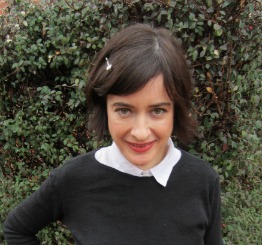
Senior lecturer in English in the CSU School of Humanities and Social Sciences in Bathurst Dr Suzie Gibson (pictured) said the recent job cuts at Fairfax Media newspapers have further heightened concerns.
"The printed broadsheet is now a dinosaur, just as traditional books are starting to look like alien forms in English classrooms," Dr Gibson said.
"It is no surprise then that one of Australia's most respected writers, Frank Moorhouse, is now lamenting the fact that he is poor. In the most recent edition of one of Australia's few surviving literary journals – Meanjin – he writes about being broke after half a century of working as a journalist, screenwriter and novelist.
"In response, Ben Eltham, writing in the Sydney Review of Books, asserts that Moorhouse's dire financial situation reflects very poorly on the 'state of Australian letters'."
Dr Gibson said the quixotic notion that writing alone could ever earn the majority of writers an adequate living has always been dubious.
"Most writers, even great ones, have had to eke out an existence through finding alternative means of income. The great modernist writer Joseph Conrad toiled on shipping vessels in the early part of his career, while for 18 years Australia's Nobel Prize winning novelist Patrick White sold flowers, vegetables and milk.
"Late nineteenth century American novelist Henry James never had money worries because he was born into wealth. The fact that he indulged in crafting infamously difficult novels that were never commercial successes therefore hardly mattered to him."
Dr Gibson observed that in this era of post-industrialism crossed with globalisation, new and seasoned writers have to get used to the fact that our not-so very brave new world has fostered a largely non-reading public that interfaces with email, Facebook, Twitter and Instagram every day, but rarely with longer or weightier forms of literature.
"Although the digital sphere may have given birth to new kinds of reading and writing − mostly of the shorthand kind − it has also cultivated an inattentive and distracted reader," she said.
"For anyone teaching in the tertiary sector over the last 10 to 20 years it has become abundantly clear that reading resilience is a real and urgent problem. Literacy levels have fallen, leading to the development of subjects that teach university-level students basic writing skills.
"The overlap between reading and writing cannot be overstated. A good writer is a committed reader. However, there is unlikely to be a mass movement back to the reading of books when our iPhones seem to have something more entertaining to offer.
"Contemporary sub-Orwellian phrases such as 'fake news' and 'alternative facts' are bandied about in what might be termed a 'post-truth' era. Well, perhaps we have crossed another border by entering into a 'post-literacy' phase, where libraries are ridding themselves of paper books."
Dr Gibson stressed that reading involves somewhat intangible work that requires time and commitment.
"It might feel that the actions of 'tweeting' or 'liking' are more work-intensive, perhaps because they are more obviously 'activities' − actions that reach out directly into a public sphere. Reading, on the contrary, is a mostly private, silent project of self-fulfilment.
"Frank Moorhouse's predicament is unsettling because he is an established man of letters who at 78 years-of-age is struggling to make ends meet. One would like to think that such an articulate and versatile writer has earned a comfortable retirement, even though the true writer, like the true reader, in reality never reaches an end point.
"Clearly, however, in this post-literate age, more and more of our literary heroes are likely to be falling on hard times."





Social
Explore the world of social